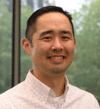Professors, Power and a Bathroom Sign

At first glance, the public restrooms at the Sogang University Graduate School of Theology look 
just like the restrooms on any seminary campus in America. But as I approached the men’s room, I saw a paper sign taped to the wall, identifying the restroom as “for professor usage (male)”.
Now to be clear, it’s not like the non-professor bathrooms are completely “old school” and way on the other side of campus. In fact, the other bathrooms are actually just about 20 yards farther down the hall, and they are perfectly serviceable.
I asked a colleague, “Do they have professor-only bathrooms at other colleges?” He immediately gave me a funny look and said, “Of course!”
 But as I think about it, the ideology behind these elite bathrooms actually aligns well with the pervasive Confucian culture in Korea. The ethos of Confucius (known in antiquity as “Model Teacher for Ten Thousand Ages”) bestows an unusually high honor and respect for those who educate from kindergarten to the university. Teachers make out like bandits on Korea’s National Teacher’s Day (May 15). And it’s not just bathrooms, but there are also professor parking spots, professor eating halls and professor meals at university cafeterias.
But as I think about it, the ideology behind these elite bathrooms actually aligns well with the pervasive Confucian culture in Korea. The ethos of Confucius (known in antiquity as “Model Teacher for Ten Thousand Ages”) bestows an unusually high honor and respect for those who educate from kindergarten to the university. Teachers make out like bandits on Korea’s National Teacher’s Day (May 15). And it’s not just bathrooms, but there are also professor parking spots, professor eating halls and professor meals at university cafeterias.
So how do you think students feel about this university culture of power and privilege given to 
professors? In my limited (i.e. unempirical and completely made-up) observations, I sometimes think about how students actually benefit from such clearly defined distinctions between professor and student. When I was a theology student in Seoul in 1994-1996, I spoke up in class exactly zero times. My fellow seminarians and I accepted that a professor’s place was to lecture, assign readings and grade, whereas the students had to listen, read and study. Learning flowed in only one direction, from the powerful and respected professor to the student. I was a TA for all three years and duties included mopping the floor and preparing the office heater. There was no such thing as an end-of-year course evaluation of the professor. But none of us complained. Most of us didn’t know anything different.
Of course, this one-way, hierarchical structure has rightly been challenged in higher education in North America. We have become suspicious of such unilateral movements in favor of broader streams of learning within a classroom community. Online forums, flipped classrooms, even call-professor-by-their-first-name culture all have some aspect of divesting power from the podium. I am very supportive of these innovative movements in theological education. After all, I am part of the team that brought you last year’s Wabash blog “12 Surprises When Lecturing Less (and Teaching More).”
But alongside these pedagogical innovations, I believe that we still need to claim our power as professors. We have this power, whether we acknowledge it or not. It is granted to us by our accrediting bodies, our home institution, our students, and the constituencies that send our students.
When I enter my classroom, whether traditional or online, I am usually the expert in the room on topics like Israelite historiography. I also have broader insight than the students on the design of the class, its place in the curriculum, and the greater mission of the institution.
Being aware of this power certainly does not mean that we abuse it. But it also does not mean that we neglect it. Our vocational calling as educators compels us to acknowledge and name that power, and to own it in the classroom in ways that can best accomplish our institutional objectives. At the same time, our privileged position should cause us to continually question the scope and dimensions of our power, to interrogate it, to challenge or even reject it when necessary.
Perhaps the bathroom sign reflects a truth that those of us who teach in the Western world need to remember. Power does not have to be so incompatible with the calling of a professor. We all recognize that Confucius was a great teacher, but the “Model Teacher” was also an influential political player within the House of Lu during the Zhou Dynasty. Somehow I doubt that his teaching would have spread had he not judiciously exerted his political influence. I wonder if he had his own bathroom.
About Roger S. Nam
Roger Nam, Assistant Professor of Biblical Studies, Portland Seminary. A California native, Roger lives in Lake Oswego, Ore., with his with his wife, Samantha, and their two sons, Jared and Asher. As California transplants, they freely complain about the lack of sunshine, while secretly loving the cuisine, culture and the natural beauty of the Pacific Northwest. Roger works primarily on understanding the nature of economy in the ancient Near East, particularly as reflected in biblical and extra-biblical texts. He works secondarily on Late Bronze Age civilizations, social scientific approaches to the Bible and inner-biblical exegesis. His doctoral work was at UCLA in Near Eastern Languages and Culture; he has authored Portrayals of Economic Exchange in the Book of Kings (Leiden: Brill, 2012) and is presently writing a book on the economies of Judah during the Persian period. Before entering the academic field of biblical studies, he was a pastor at Choong Hyun Presbyterian Church in Seoul, Korea (1994-1996), and a financial analyst at Maxim Integrated Products (1997-2000). Find him at http://www.georgefox.edu/seminary/faculty/bio/roger-nam.html